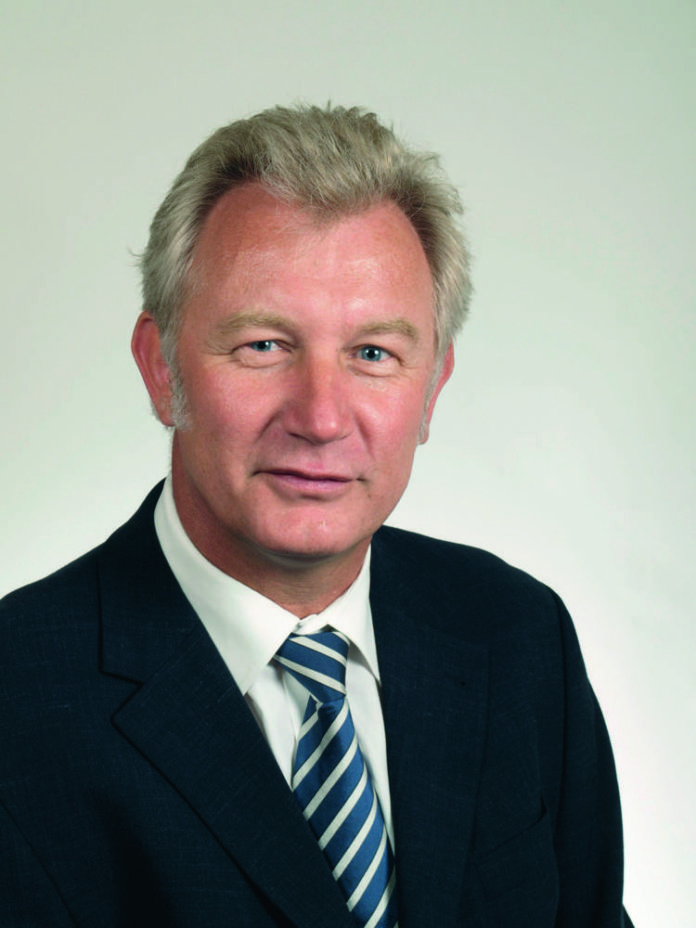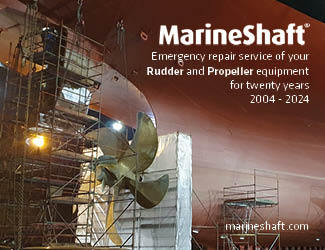
In an interview with HANSA, Alexander Nürnberg, Chairman of VDMA German Marine and Offshore Equipment Industries, presents an insider perspective for the supply industry concerning a strong German market share, green energy, restructuring shipyards in China, and global competition
Ge[ds_preview]rmany’s export industry is still strong, despite of the global economic recession. Does this also apply for the marine equipment branch?
Alexander Nürnberg: Certainly yes. Even in a comparatively low shipbuilding market Germany’s marine suppliers have kept their market share. Local competition in the Asian shipbuilding countries is increasing, but due to low freight rates operational costs need to be as low as possible. Efficient operation is regarded as a strong point of our products.
What are the strongest markets in terms of regions and segments at the moment?
Nürnberg: Luckily the shipbuilding market itself is not growing in the moment as this would give even more pressure on the freight rates. Main regions as South Korea, China, Japan and Turkey are decreasing their capacities. Very large container vessels are dominating the merchant shipbuilding activities with respect to transport capacity, and there has been a kind of bullish tanker market in the last twelve months. Work boats as well as rigs and ships for oil and gas exploration are being built especially for the Asian and American market resulting to a significant order intake for German suppliers of propulsion and automation systems.
Since many years we have been talking about ›green shipping‹. Do you already see significant demand for efficient and environmental-friendly technologies?
Nürnberg: The demand for efficient and environmental-friendly ship operation has two main drivers: legislation and operational cost. Shipping legislation is a global issue. Thus, it is slow – and as long as it leads to the need for investment, there are strong players finding ways to delay it.
As long as the costs of energy were low, investments in environmental-friendly technologies did not find sufficient interest from the shipbuilding community. Being under pressure with high operational costs due to high fuel prices and due to increasing public pressure for clean transportation, the demand for the ›green‹ technologies is steadily increasing now.
German Diesel engine technology is the leading one and the engine technology belongs to the key industries in Germany. The so-called ›green technologies‹ have great attention in Germany. The actual energy transformation (»Energiewende«) and strong environmental legislation are giving a technology push to the industry.
It might be worth mentioning that the cruise ships with the most efficient energy consumption are being developed by Meyer Werft in Papenburg, and most key components come from German suppliers.
Ship operators have been reluctant to apply solutions like ballast water treatment systems or exhaust gas cleaning systems. Now, as the regulatory deadlines are coming nearer, do you see an increase of orders for such technologies?
Nürnberg: Lately we can see an increase of installations for these equipments, but
it could be much more. Honestly speaking there are few shipowners with high-tech vessels or operating in sulphur emission controlled areas (SECA) who are installing these technologies in their newbuildings.
Ballast water treatment is needed in some areas meanwhile and vessels sailing there demand such installations. However, the coming into force of the Ballast Water Management Convention (BWM Convention) in a global scale is pending since almost ten years as the number of states and the related merchant ship tonnage does not reach the necessary threshold until now. To be fair it needs also to be mentioned that investments and retrofitting activities are not affordable for many shipowners due to the extremely low charter rates for the time being.
After a rather weak newbuilding activity in the second half of 2011 and in 2012, we saw orders picking up recently. Do you realise this trend also in the suppliers’ order book?
Nürnberg: We see an increased number of projects becoming firm orders, recognizing a moderate upward trend. Reasons for this are very low newbuilding price levels and the need of those shipyards with a longer perspective to keep the operation ongoing on a lower base.
However, there is a dark side of the improved business cycle: Shouldn’t the shipping industry be careful not to build too many ships again, which led to the recent crisis?
Nürnberg: Absolutely! It needs to remain on such a level that demand and offering are close to a balance. The market needs to take care for this. But it is obviously not easy for financial investors to respect the mechanism of the cattle cycle and to avoid its negative results.
Talking about China, the country’s shipbuilding industry is still your largest partner. How do you judge the situation there regarding the shipyard landscape and existing overcapacities?
Nürnberg: The Chinese government and the local Chinese administrations have already decided to close more than 2,000 shipyards and to reduce the capacity significantly. After the big boom in merchant shipping China needs to develop a new strategy for its shipbuilding industry. For some years it was sufficient to buy or duplicate existing designs and acquire market shares by offering the lowest possible price. With significant newbuilding over-capacities the surviving shipyards need to offer technical solutions and advantages in ship operation rather than a low price only.
»There is a great opportunity to create strategic partnerships between German and Chinese companies«
Is high-end technology from Germany, which is not the cheapest, a growing option for Chinese-built ships, since it is also demanded by operators? Or has the competition with Chinese suppliers, who also enhance their quality level, become fierce?
Nürnberg: As China is moving towards building energy efficient and/or technological advanced vessels, there is a great opportunity to create strategic partnerships between German and Chinese companies. Basic design and lifetime service are core competencies of European companies. Chinese partners contribute with market access and competitive production facilities. Leading German engine makers already went into partnerships with Chinese companies as well as many smaller maritime equipment suppliers from Germany and other European countries.
Which role do local content requirements play at the moment?
Nürnberg: Local content is a constantly increasing demand and it is not restricted to the developing countries or to the Asian markets. Basically it stands against the idea of a global and free competition. But due to economic reasons and supported by state-funded local economic programmes it is more and more accepted. Representing a large number of small and medium enterprises (SME), it is worth saying that political support of our European governments and politicians is needed in order to keep growing local content demand in acceptable boundaries.
Copyright protection has been a big issue in the past. Is it still a topic for German suppliers in Asia?
Nürnberg: Yes, certainly. We as VDMA are strongly supporting free global trade and development as this is the base for sustainable and continuous growth on a worldwide base. One of the roles of the VDMA is to encourage cross cultural cooperation and idea exchange. As some Asian countries have achieved a high ranking on the list of industrialised countries, they should be encouraged to continue with the progress in adhering to global business practices such as in understanding of IPRs (Intellectual Property Rights) and the concept of mutual partnerships. Once a mutual understanding of the regulations and guidelines of working across several cultures has been established and as this cross-cultural understanding grows, much further collaboration will be enabled, as many examples of German companies show.
Where do you see the advantage of German marine suppliers in competition?
Nürnberg: It’s mainly due to two reasons: advanced technology and support from shipowners. Equipment with German origin is in general not the cheapest, but provides certain advantages with regards to performance and efficiency. Thus it is selected by shipyards and shipowners to increase a vessel’s quality. Typical examples are:
• The development of the technology for dual-fuel engines to meet the IMO Tier III regulations has been very dynamic in the past years. Not only main engine manufacturers, a strong pillar of our maritime branch in Germany, drove the technology but also many smaller and medium-sized companies contributed with high-tech components and monitoring systems.
• Exhaust gas cleaning to remove NOx and SOx contaminations is common for onshore power plants since many years. To reduce the environmental impact of marine transport, suitable adoptions have been made and first installations are performing already. For example, the inspection maintenance and repair vessel »Seven Viking« and the cruise liner »Europa 2« have been equipped with selective catalytic reduction systems from German manufacturers to reduce NOx emissions.
• Heat recovery to increase the overall efficiency is another field with improved solutions. Heat from the exhaust gas and from waste burning is used for fuel and water treatment.
• Hydrodynamic performance of the vessels has been improved by modified bow designs, twisted rudders, and different ducts and nozzles. Especially some well-known Hamburg-based companies are cooperating and offering high-end products in this range.
• Monitoring the daily ship operation and delivering criteria for the officers to find the best trim, speed and course depending on the external conditions is becoming more and more popular. This gives a great chance to smaller enterprises offering advanced measuring and analysing devices.
• Last but not least there have been made improvements in coating systems to reduce hull resistance and thus fuel consumption. In all these challenging and dynamic fields you can see German innovative suppliers playing in the first league.
Nikos Späth


















